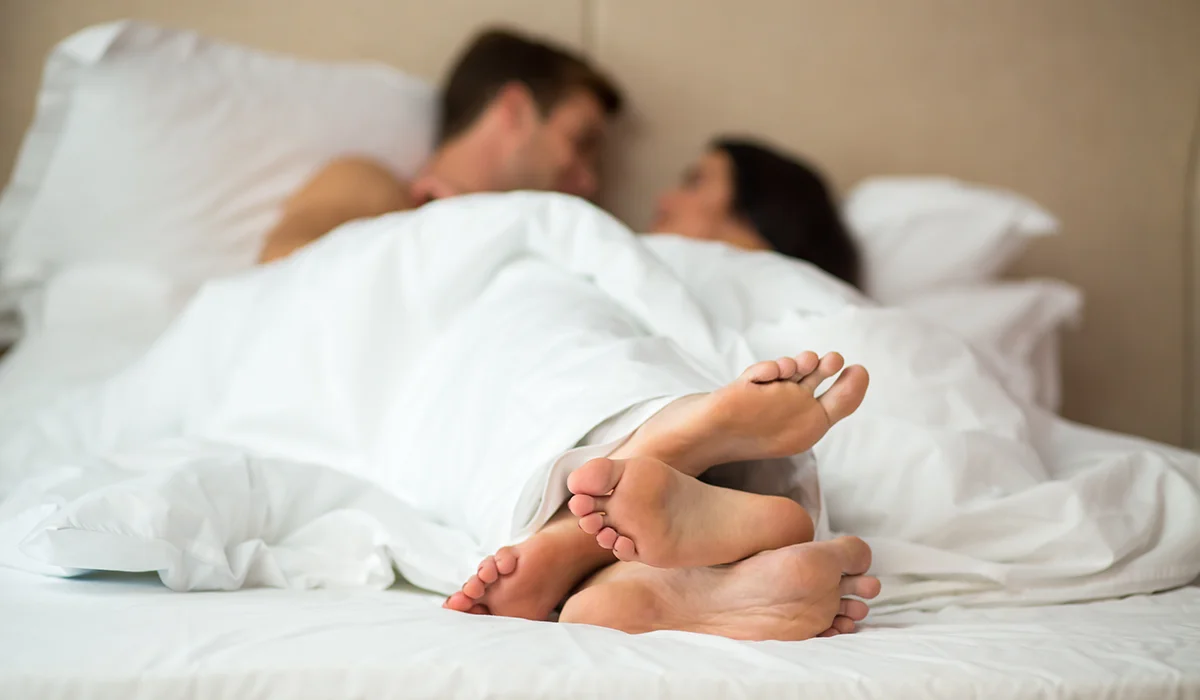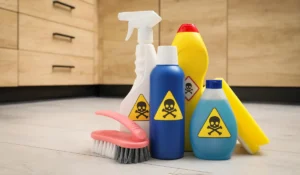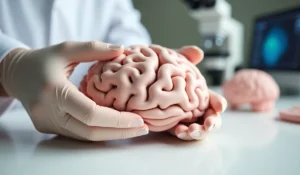Have you been feeling unusually tired, lacking energy, or noticing changes in your mood? You might be experiencing low testosterone. I’d like to help you understand what causes low testosterone, when it typically starts, its symptoms, and the chemistry behind it. We’ll also explore how it impacts your daily life, how functional medicine can offer solutions, and tips to prevent low testosterone.
What Causes Low Testosterone?
Testosterone is a vital hormone produced primarily in the testes for men and in smaller amounts in the ovaries for women. It plays a crucial role in developing male physical characteristics, but it also affects muscle mass, bone density, mood, and energy levels in both genders.
Low testosterone, or hypogonadism, can result from various factors:
- Aging: Testosterone levels naturally decline with age, typically starting around age 30 and decreasing about 1% each year.
- Chronic Health Conditions: Diseases like type 2 diabetes, obesity, and metabolic syndrome can lower testosterone levels.
- Injury or Infection: Damage to the testes from injury or infections like mumps can affect hormone production.
- Hormonal Disorders: Issues with the hypothalamus or pituitary gland, which regulate hormone production, can lead to low testosterone.
- Medications: Certain medications, such as opioids or steroids, may interfere with testosterone production.
- Lifestyle Factors: Excessive alcohol consumption, smoking, and high stress levels can contribute to decreased testosterone.
Understanding the root cause is essential for addressing low testosterone effectively.
When Does Low Testosterone Start?
While testosterone levels peak during adolescence and early adulthood, they begin to decline gradually after age 30. However, low testosterone isn’t exclusive to older men. Younger individuals can also experience low levels due to factors like obesity, stress, or underlying medical conditions.
It’s important to recognize that a decline in testosterone is a normal part of aging. But when levels drop below the normal range, it can lead to noticeable symptoms that affect quality of life.
Symptoms of Low Testosterone
Low testosterone can manifest in various ways. Some common symptoms include:
- Fatigue and Low Energy: Feeling persistently tired despite adequate rest.
- Decreased Libido: Reduced sexual desire and performance issues.
- Mood Changes: Experiencing depression, irritability, or difficulty concentrating.
- Muscle Loss: Decrease in muscle mass and strength.
- Increased Body Fat: Particularly around the abdomen.
- Bone Density Reduction: Higher risk of fractures due to weakened bones.
- Hair Loss: Thinning hair or baldness.
- Sleep Disturbances: Insomnia or disrupted sleep patterns.
These symptoms can vary in severity and may be mistaken for other health issues. If you’re experiencing several of these signs, it might be worth exploring whether low testosterone is the underlying cause.
The Chemistry Behind Low Testosterone
Testosterone production involves a complex hormonal cascade starting in the brain. The hypothalamus releases gonadotropin-releasing hormone (GnRH), signaling the pituitary gland to produce luteinizing hormone (LH). LH then stimulates the testes to produce testosterone.
When any part of this chain is disrupted, testosterone levels can decline. Factors like stress can increase cortisol production, which may inhibit GnRH and subsequently reduce testosterone synthesis. Additionally, excess body fat can convert testosterone into estrogen through the action of the enzyme aromatase, further lowering testosterone levels.
Nutrient deficiencies, such as low levels of zinc and vitamin D, can also impair testosterone production. Understanding these biochemical pathways helps in identifying targeted interventions to restore hormonal balance.
How Low Testosterone Impacts Daily Life
Low testosterone doesn’t just affect physical health; it can significantly impact your emotional and mental well-being. You might notice decreased motivation, difficulty concentrating, or a lack of confidence. These changes can affect relationships, job performance, and overall happiness.
Physically, reduced muscle mass and increased body fat can make it harder to maintain a healthy weight and stay active. Bone density loss increases the risk of osteoporosis and fractures, limiting mobility. Sexual health issues can strain intimate relationships and affect self-esteem.
Sleep disturbances caused by low testosterone can lead to chronic fatigue, further exacerbating mood disorders and reducing quality of life. Recognizing these impacts underscores the importance of addressing low testosterone proactively.
How Functional Medicine Can Help
Functional medicine offers a holistic approach to treating low testosterone by addressing the root causes rather than just the symptoms. I focus on understanding your unique health profile, including lifestyle, nutrition, and environmental factors.
Comprehensive Assessment
We begin with a thorough evaluation, including:
- Detailed Medical History: Assessing symptoms, medical conditions, and family history.
- Laboratory Testing: Measuring hormone levels, including testosterone, LH, and cortisol.
- Nutritional Analysis: Identifying deficiencies in essential nutrients like zinc and vitamin D.
- Lifestyle Evaluation: Examining diet, exercise, sleep patterns, and stress levels.
Personalized Treatment Plan
Based on the assessment, we develop a customized plan that may include:
- Nutritional Support: Incorporating foods rich in nutrients that support testosterone production, such as lean proteins, healthy fats, and antioxidant-rich fruits and vegetables.
- Supplementation: Recommending supplements like zinc, magnesium, and vitamin D if needed.
- Stress Management Techniques: Implementing practices like mindfulness meditation, yoga, or deep-breathing exercises to reduce cortisol levels.
- Exercise Regimen: Designing a fitness plan that includes resistance training and cardiovascular activities to boost testosterone naturally.
- Sleep Optimization: Establishing healthy sleep habits to enhance hormone production.
- Lifestyle Modifications: Addressing habits like smoking cessation and reducing alcohol intake.
Collaboration and Support
Throughout the process, we work together to monitor progress and adjust the plan as needed. This collaborative approach empowers you to take control of your health and make sustainable changes.
Tips to Prevent Low Testosterone
While some factors affecting testosterone are beyond control, certain lifestyle choices can help maintain healthy levels:
- Maintain a Balanced Diet
Focus on whole foods rich in proteins, healthy fats, and complex carbohydrates. Include foods high in zinc and vitamin D, like oysters, lean meats, nuts, and fatty fish. - Engage in Regular Exercise
Incorporate strength training and high-intensity interval training (HIIT) to boost testosterone. Stay active with activities you enjoy to promote consistency. - Manage Stress
Practice relaxation techniques to lower cortisol levels. Prioritize activities that bring joy and relaxation. - Ensure Adequate Sleep
Aim for 7-9 hours of quality sleep per night. Establish a consistent sleep schedule and create a restful environment. - Limit Alcohol and Avoid Smoking
Reduce alcohol consumption, as excessive intake can lower testosterone. Avoid smoking, which negatively impacts hormone production. - Maintain a Healthy Weight
Work towards a healthy body weight to reduce the conversion of testosterone to estrogen. Seek guidance if you need support with weight management.
Implementing these tips can support hormonal balance and enhance overall well-being.
Take the First Step Toward Renewed Vitality
Low testosterone can significantly impact your quality of life, but you don’t have to navigate this journey alone. With the right support and a personalized plan, it’s possible to restore balance and regain energy, motivation, and joy.
Schedule your discovery call today. Contact Astra Health & Wellness at 435-565-1384. Let’s work together to address low testosterone and enhance your vitality.
References
- Harvard Health Publishing. (2022). Testosterone and Men’s Health. Retrieved from https://www.health.harvard.edu/mens-health/testosterone-and-mens-health
- Mayo Clinic. (2022). Low Testosterone (Male Hypogonadism). Retrieved from https://www.mayoclinic.org/diseases-conditions/male-hypogonadism/symptoms-causes/syc-20354881
- National Institutes of Health. (2021). Testosterone Treatment: What to Know. Retrieved from https://www.nih.gov/news-events/nih-research-matters/testosterone-treatment-what-know
- Cleveland Clinic. (2022). Testosterone Deficiency. Retrieved from https://my.clevelandclinic.org/health/diseases/17630-testosterone-deficiency
- Journal of Clinical Endocrinology & Metabolism. (2022). Lifestyle Factors and Testosterone Levels. Retrieved from [Link to Journal Article]
- World Health Organization. (2021). Sexual and Reproductive Health. Retrieved from https://www.who.int/reproductivehealth/topics/sexual_health/sh_definitions/en/








